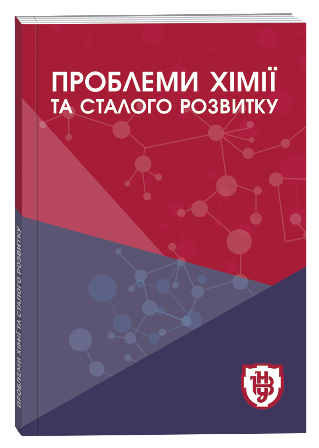THE POTENTIAL OF ARTIFICIAL INTELLIGENCE IN TRAINING FUTURE NURSING PROFESSIONALS
DOI:
https://doi.org/10.32782/pcsd-2024-2-7Keywords:
medical education, artificial intelligence, digitalization, digital technologies, students, innovation, future nursing professionalsAbstract
Information and communication educational technologies open new opportunities for the development of cognitive abilities in medical academy students, enhancing memory, thinking, imagination, and stimulating their creative initiative. The use of artificial intelligence in the professional training of future nursing specialists enables students to acquire communicative, organizational, and managerial skills more quickly and effectively, which is becoming increasingly important in the context of globalization and international communication. An analysis of numerous foreign and domestic studies in the field of learning analytics has identified the following key directions for its use in the training of future nursing specialists: predicting student behavior/activity during the learning process; designing and developing new models and methods for presenting knowledge in the subject area; researching the interaction between "teacher – student" and/or "learning environment – student"; studying the phenomenon of learning itself and the psychology of students who are future nursing specialists. Artificial intelligence technologies have significant potential in personalizing the education of future nursing specialists. A notable advantage of artificial intelligence technologies in the training of future nursing specialists is the assessment of students’ competency development. The use of artificial intelligence, particularly natural language processing algorithms, allows for the automation of the analysis and evaluation of student work. Such assessment systems include an analytics module, through which necessary data about the learning process can be obtained, identifying the most challenging topics for students and reviewing them as needed. The most important advantages of artificial intelligence technologies in the professional training of future nursing specialists include, but are not limited to, the possibility of organizing personalized learning, providing instant feedback, and accessing large volumes of data. However, there are also disadvantages of this innovation: the need to adapt artificial intelligence systems to the specifics of the medical field, developing systems to form complex skills and abilities, as well as fostering personal qualities in future nursing specialists, such as empathy. There is currently a need to ensure collaboration between education specialists and artificial intelligence technology developers for more effective use of artificial intelligence in the field of education.
References
Іващук O., Іващук Д. Використання медичних інформаційних систем у фаховій підготовці майбутніх лікарів. Науковий вісник Ужгородського університету. Серія: «Педагогіка. Соціальна робота», 2021. (1(48). 166–169. https://doi.org/10.24144/2524-0609.2021.48.166-169
Ільницька Т. С. Дослідження ефективності підготовки майбутніх медсестер до професійної діяльності в умовах цифровізації медичних коледжів. (2023). Modern Information Technologies and Innovation Methodologies of Education in Professional Training Methodology Theory Experience Problems, 2023. 69. 35–42. https://doi.org/10.31652/2412-1142-2023-69-35-42
Юхно Н. Обґрунтування дидактичних умов формування інформаційно-цифрової компетентності студентів медичного коледжу. Наукові записки кафедри педагогіки, 2019. 1 (44). 315–322.
Яворська Г. Х., Пономарюк Л. П. Професійна підготовка молодших медичних спеціалістів як педагогічна проблема. Наука і освіта. Сер.: Педагогіка. 2012. 1. 87–89.
Ястремська С. О. Теорія і методика професійної підготовки майбутніх магістрів сестринської справи у вищих медичних навчальних закладах засобами дистанційного навчання: дис. … доктора пед.. наук: 13.00.04 / Хмельницька гум.-пед. акад. Хмельницький, 2018. 358.
Chemouil P., Hui P., Kellerer W., Li Y., Zhang Y. Special issue on artificial intelligence and machine learning for networking and communications. IEEE Journal on Selected Areas in Communications. 2019. 37 (6). 1185–1191. DOI: https://doi.org/0.1109/JSAC.2019.2909076
Fazal, Aman, Azhar, Rauf, Rahman, Ali, Farkhund, Iqbal, Asad, Masood Khattak. A Predictive Model for Predicting Students Academic Performance. Proceedings of the 10th International Conference on Information, Intelligence, Systems and Applications (IISA). 2019. DOI: https://doi.org/10.1109/IISA.2019.8900760
Prevedello L. M., Erdal B. S., Ryu J. L., Little K. J., Demirer M., Qian S., White. Automated critical test findings identification and online notification system using artificial intelligence in imaging. Radiology. 2017. 285 (3). 162664. 923–931. DOI: https://doi.org/10.1148/radiol.2017162664
Rana Khudhair Abbas, Ahmed. Artificial Neural Networks in E-Learning Personalization: A Review. International Journal of Intelligent Information Systems. 2016. 5 (6). 104–108. DOI: https://doi.org/10.11648/j.ijiis.20160506.14
Zhiyenbayeva N. Artificial Intelligence in Education: AIEd for Personalised Learning Pathways. Electronic Journal of e-Learning. 2022. 20 (5). 639–653.







